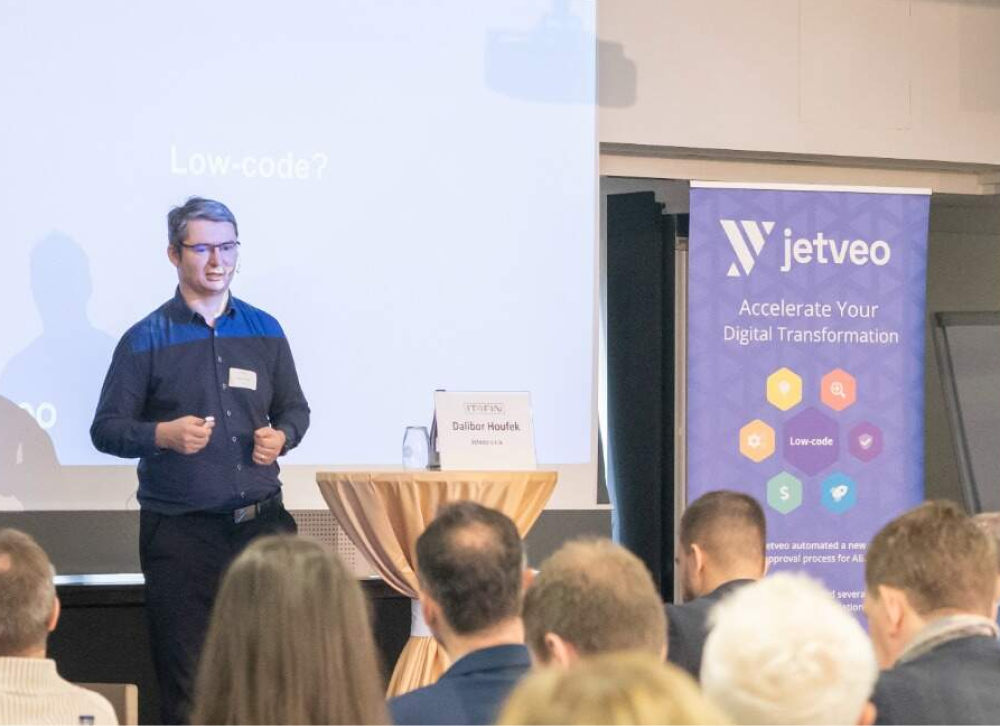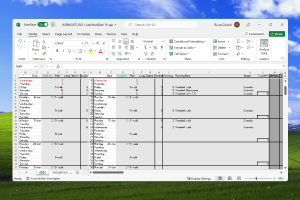Pop the Bubble: Time to Learn about Low-code
It is worth your while to learn about how low-code programming is changing software development — and how it can streamline your business operations.
By Bruno Zalubil
Social bubbles and political silos are terms that are common in today's fragmented society. It makes sense: people like to engage with things with which they are comfortable. Unfortunately, the failure to break out and get a different perspective can strip you of a great opportunity, or leave you behind when the zeitgeist grabs hold of the new trend.
Unwittingly, I got stuck in a bubble that, as recently became evident to me, has not yet reached common knowledge.
Low-code programming is still a new concept to many people who would benefit mightily from it.

I write the text for brochures and blogs and social media posts to promote Jetveo, a start-up company that built a platform to tap into the low-code programming future. Constantly hitting the same notes — it's faster, more affordable, more efficient, requires less senior programmers than traditional development — does two things: It makes you a believer and it makes the information, despite its veracity, redundant.
Last week, I went to the Ninth Annual CAFIN IT Conference for Finance in Prague. It was full of intelligent professionals who use technology at a high level. Yet, from the first speaker, it was evident that the concept of low-code programming to fill operational gaps was clearly foreign.
For the record:
Low-code development uses building blocks to efficiently create the foundational aspects of apps and it allows for the customization of the business logic with C# coding.
It is in the sweet spot between classic programming, which requires advanced knowledge and complex coding, and no-code programming, which is based upon a drag-and-drop visual interface. It uses the best elements of both: the flexibility and customization of classic programming and the simplicity and speed of no-code programming.
That is why low-code developers can promise functioning apps in two weeks. The ease of use is how junior developers are empowered. And that is how end customers save money on the end products.
At the CAFIN IT Conference for Finance, the low-code thread started at the beginning and wound through the entire day of keynote talks and workshops.
Jan Hejtmánek, the Director of Deloitte Czech Republic, brought up low - code programming in his opening keynote address “Technological Trends and Work in Finance — Automation, Data, New Systems”.
Dalibor Houfek, the CEO and co-founder of Jetveo, was next with his keynote address, which was titled “How to Deal with Costly Application Development and Slow Digitization of Internal Processes”. As he expounded on how we bolster companies with bespoke apps developed on our low-code platform, it was clear that the topic was revelatory for the audience.
Later, in the workshops, several presenters mentioned low-code programming in passing. In “Innovative Forecasting with Power BI”, Luboš Bednář and Alexandra Profantová of intecs data gave an example of how a low-code program could be quickly created as the back end for data that seamlessly integrates with a top-of-the-line front-end interface.
During their talk, they asked the audience who had experience with the low-code programming.Only five or six hands went up.
Shockingly enough, even in the Jetveo workshop — “Experience of Companies with Low-code Development and Digitization” — one of Jetveo's best customers acknowledged that: “I didn't know that it was called 'low-code'.” Yet, whether she knew the term or not, Ing. Dagmar Růžičková, the Economics Manager within the Technical and Operational Administration for the National Theatre in Prague, was able to explain the benefits of the bespoke apps that were created and implemented for her centuries old cultural landmark.

Ordinarily, one might say: Don't ask how the sausage gets made.
In this case, the insides of the Jetveo Platform and App Builder are sophisticated and intuitive — and the low-code programming model is inviting for businesses looking for internal software to make their operations more efficient, for developers looking to make apps, and even for novice programmers looking for some experience.
See how your business could benefit from the bespoke apps that can be created quickly and efficiently with low-code programming.
Do you have a specific issue that you would like to smooth out? Are there gaps in your communication or inconsistencies in your task workflows? Would you like to digitalize more paperwork?
Consult with Jetveo about bespoke applications that can be created specifically for your business and your specific requirements.
 EN
EN
